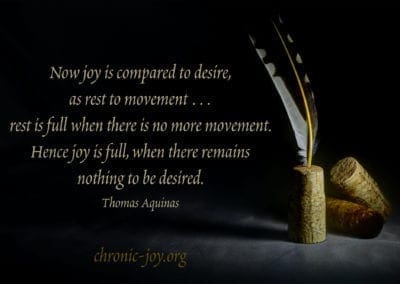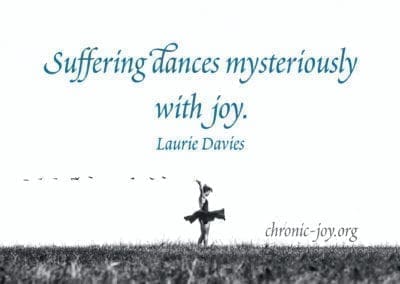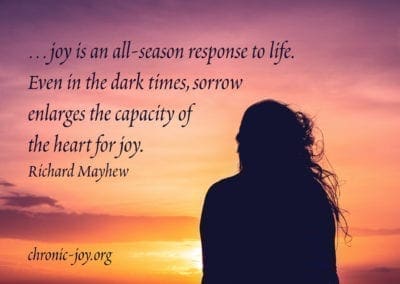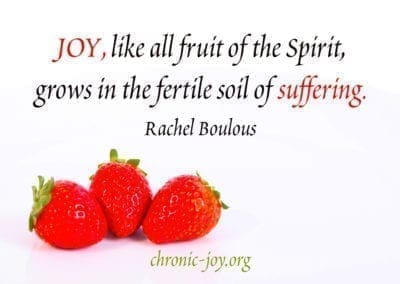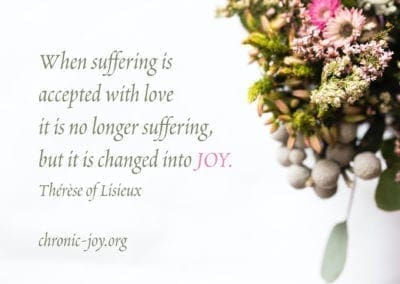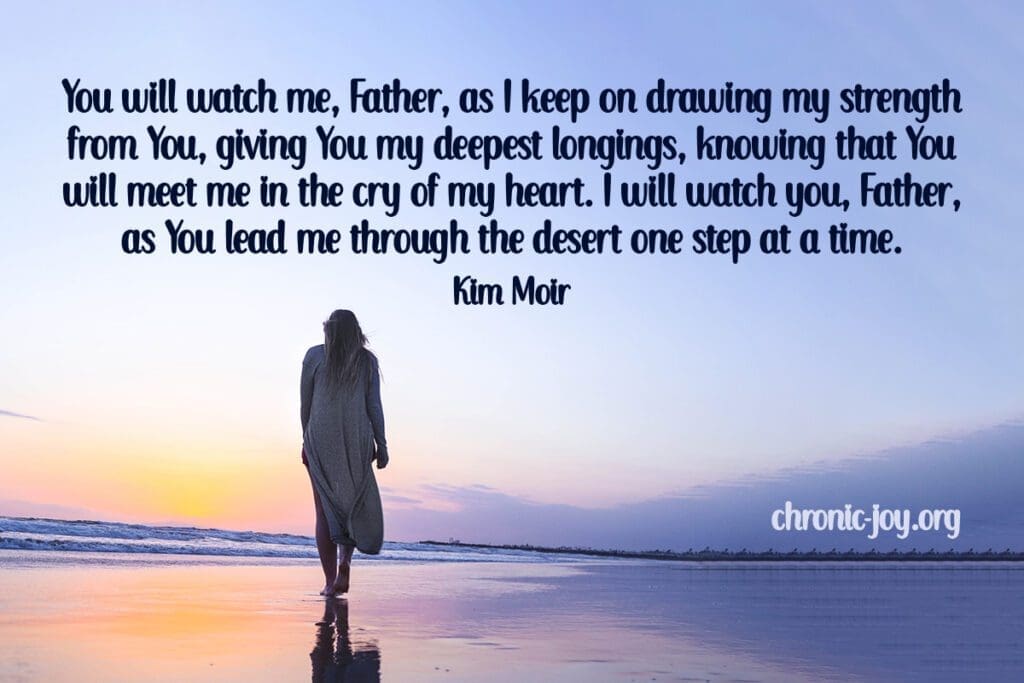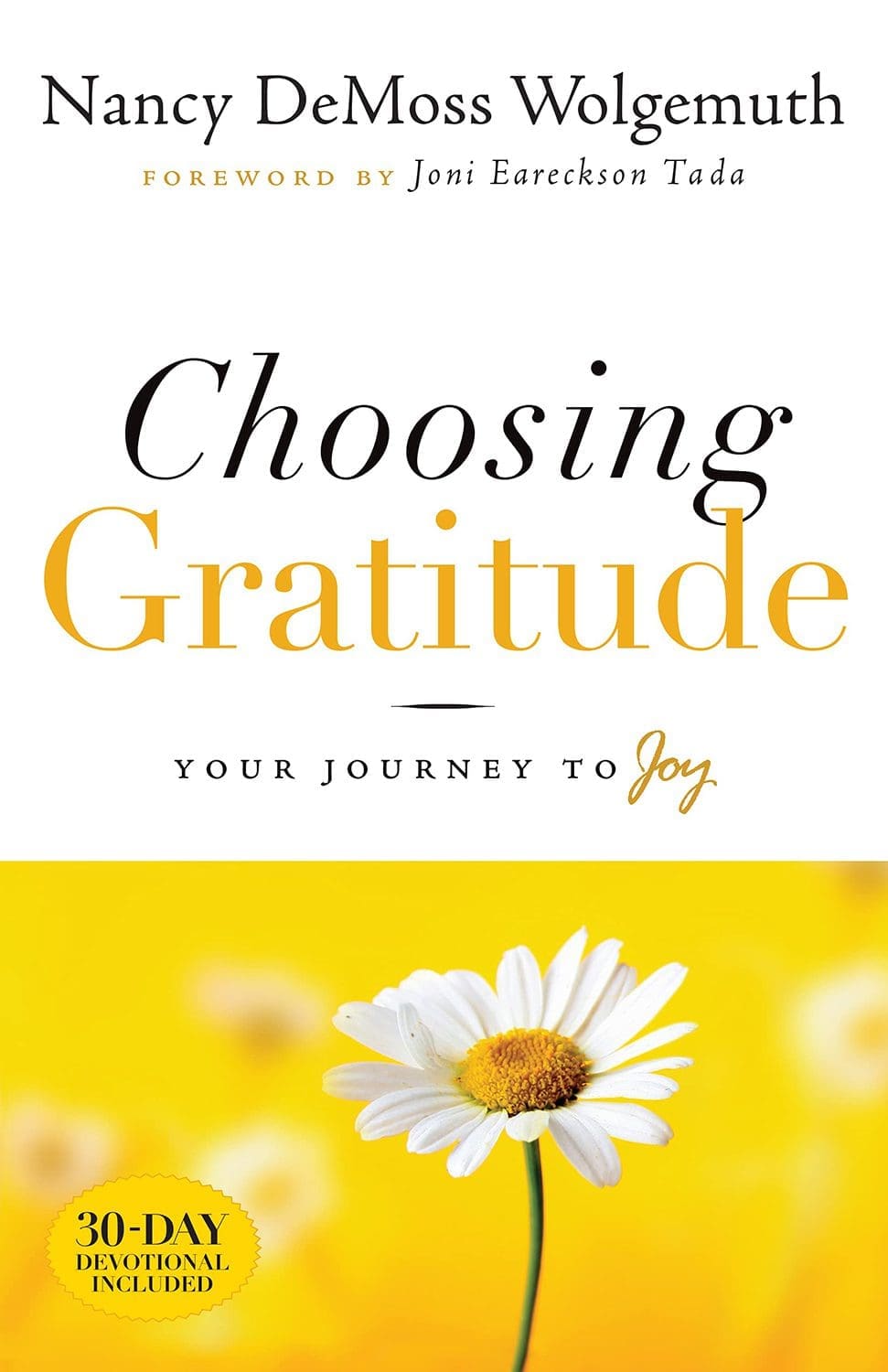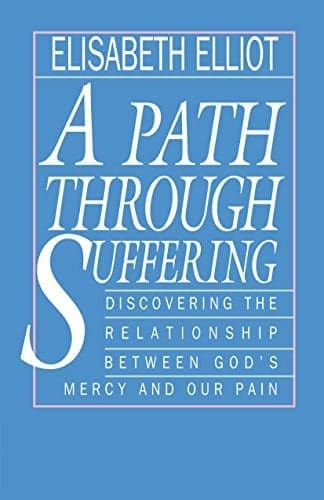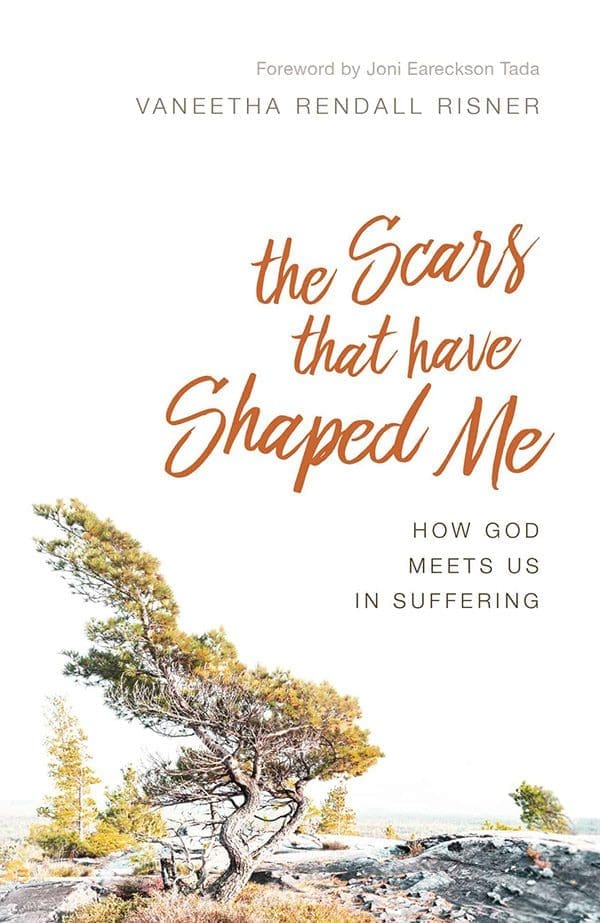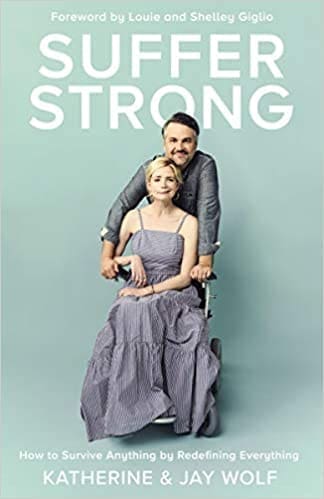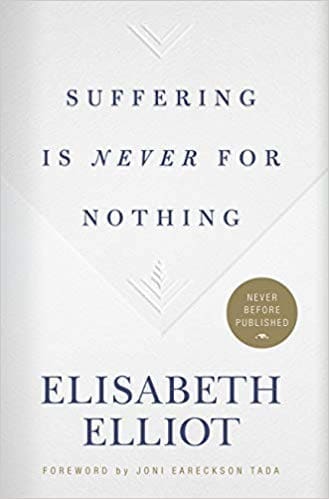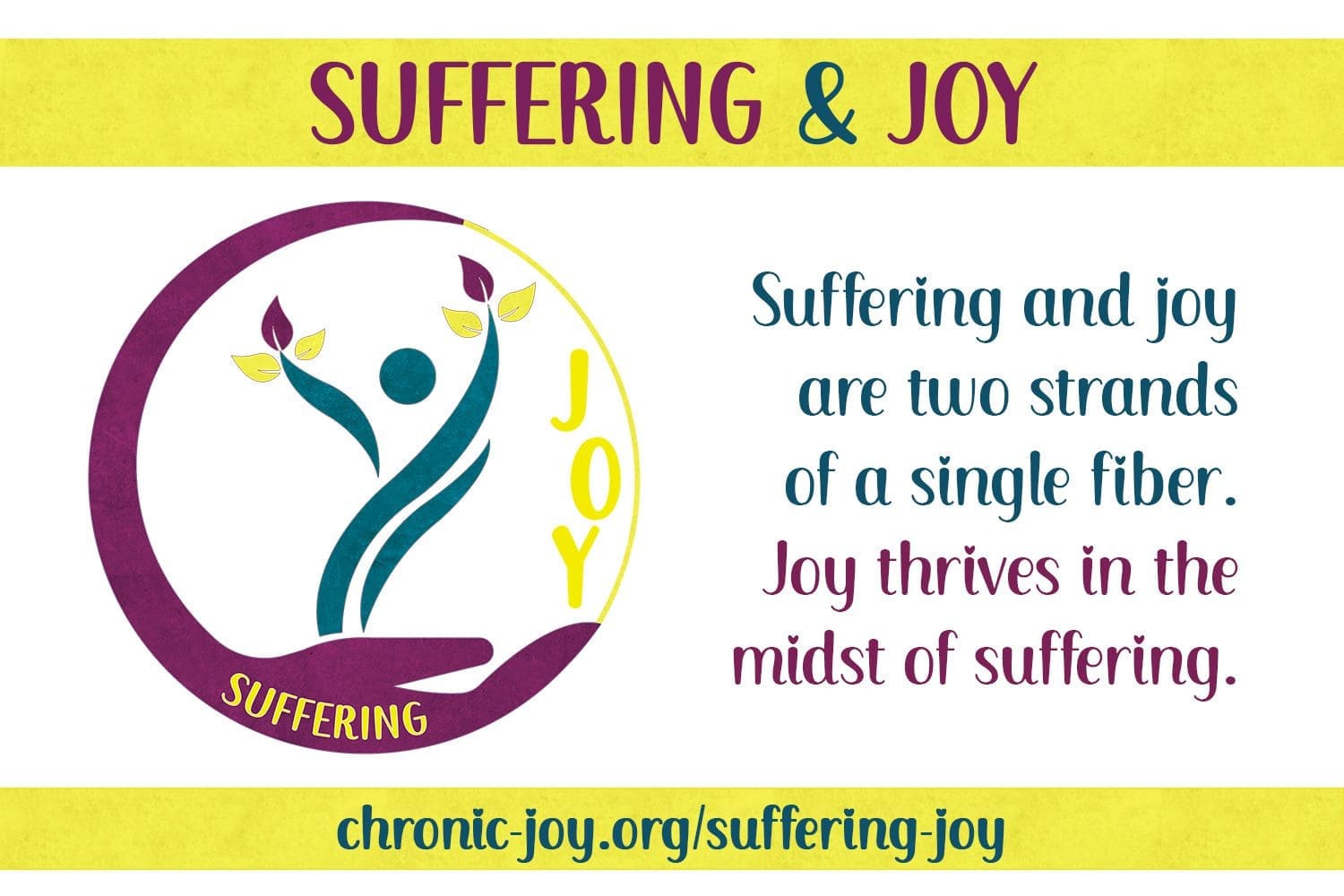
Suffering & Joy
JOY THRIVES IN THE MIDST OF SUFFERING
Suffering and joy are two strands of a single fiber. Joy thrives in the midst of suffering, for it is not rooted in circumstance but is born of the knowledge that God is present in every moment of our lives.
“Count it all joy, my brothers, when you meet trials of various kinds …” (James 1:2)
WHAT IS JOY?
“Joy,” wrote Columba Marmion in the nineteenth century, “is the echo of God’s life in us.”
Joy is the second fruit of the Spirit listed right behind love (Galatians 5:22-23). God is love (1 John 4:8) and He is our joy (Psalm 16:11). So, our joy is Christ in us.
John Piper defines joy as “… a good feeling in the soul, produced by the Holy Spirit, as he causes us to see the beauty of Christ in the word and in the world.”
Jack Wellman said, “Joy isn’t like happiness which is based upon happenings … No, joy remains even amidst suffering.”
JOY AND SUFFERING CAN COEXIST
The Apostle Paul commended the early church in Thessalonica: “… you welcomed the message in the midst of severe suffering with the joy given by the Holy Spirit” (1 Thessalonians 1:6). Those early believers experienced joy in the midst of severe suffering, evidence of the Holy Spirit living in them.
Paul encouraged the believers in Rome: “… we also glory in our sufferings, because we know that suffering produces perseverance; perseverance, character; and character, hope” (Romans 5:3-4). To the believers in Corinth, he wrote, “For the sake of Christ … I am content with weaknesses, insults, hardships, persecutions, and calamities.” (2 Corinthians 12:10)
Paul’s words, “I am content with …” can also be translated:
- “delight in …” NIV
- “rejoice in …” Barclay
- “I am glad of …” NJB
- “take pleasure in …” KJV
- “can even enjoy …” Phillips
To the church at Colossae, Paul wrote: “Now I rejoice in what I am suffering …”
REJOICE IN THE MESSY MIDST OF SUFFERING
Paul’s message is clear. Followers of Jesus don’t rejoice after suffering or as soon as the trial is over – we rejoice in the messy midst of suffering. Why? Because:
- “… [our] names are written in heaven” (Luke 10:20).
- God is our joy and delight (Psalm 43:4).
- He fills us with joy in His presence (Psalm 16:11).
Jesus prayed His followers would “have the full measure of my joy within them.” (John 17:13)
“Until now,” Jesus said in John 16:24, “you have not asked for anything in my name. Ask and you will receive, and your joy will be complete.”
JESUS IS OUR JOY
God promises us the full measure of Jesus’ joy — complete joy, because He is our joy.
Heaven is coming, where there will be no more sorrow or tears, no more illness, no more pain or suffering, no more loneliness or isolation, no more grief, and no more loss.
The One who created us and breathed life into us has prepared a place for us. Our names are written in heaven. Jesus is our joy complete.
“The riddle and insight of biblical faith,” writes Walter Brueggemann, “is the awareness that only anguish leads to life, only grieving leads to joy, and only embraced endings permit new beginnings … those who have not cared enough to grieve will not know joy.”
SUFFERING BIRTHS JOY
Jesus said, “You will grieve, but your grief will turn to joy.” (John 16:20)
“Right here lies one of the distinctives of the Christian faith, in that the believer is taught to glory and rejoice in the midst of suffering rather than to resign and submit to it as a necessary or inevitable evil.” (E.F. Harrison)
Pain is not the antithesis of joy.
Joy thrives in the midst of suffering, for it is not rooted in circumstance, but is born of the knowledge that God is with us – present in every single moment of our lives, attentive, compassionate, and infinitely loving.
NEVER ALONE IN OUR SUFFERING
We are never alone in our suffering, and it is never the end of the story.
“But rejoice inasmuch as you participate in the sufferings so that you may be overjoyed when his glory is revealed.” (1 Peter 4:13)
Overjoyed! Elated. Jubilant. Over the moon. Deliriously happy!
In this world you will have trouble,” Jesus said, “But take heart! I have overcome the world. (John 16:33)
How to Choose Joy amid Suffering
A PLACE TO BEGIN
Read through the Suffering & Joy quotes slowly. Pray about them. Ponder them. Journal your thoughts about them.
This first quote is from Chronic Joy co-founder Cindee Snider Re:
“These are the words of my heart as I watched my son grow weaker, sicker, and thinner. They are words I grieved over as I watched Sam’s friends graduate from college, land career jobs, move out of state, fall in love, marry, and purchase homes, while Sam’s world shrank to the few dozen square feet of his bedroom.
For three years, Sam’s medical team worked diligently toward his hope of attending college, but weeks after we moved him onto campus, I was picking him up in the middle of the night, because he was just too sick to stay. Sam’s health faltered and continued to plummet. By November, he was on campus only long enough each week only long enough to take his quizzes and exams. Weeks later, we withdrew him completely. I cried through every meeting that day, through every hug, through every box we packed and loaded in the car, through every long mile we drove away from Sam’s dream.
The next five years were the hardest we’ve lived through. Loss upon loss upon sustained loss – an avalanche of grief that we began to recognize as “chronic sorrow.”
Yet God tenderly, gently met us there, and these 94 words became trail markers on a new journey, as breath by breath, in the crucible of suffering, we were captivated by joy:
‘What if illness – the stripping away of our health, our dreams, our understanding of who we are and what our future holds – is really a gift – God offering Himself to us unencumbered by all the noise, all the things that clutter our hearts and so easily fill our days? Because what if that quiet, stripped-away space is where hope is found? Where God reaches in, whispering love to our weary souls until it becomes as familiar as the beating of our very own hearts?'”
Now joy is compared to desire, as rest to movement … and rest is full when there is no more movement. Hence joy is full, when there remains nothing to be desired. (Thomas Aquinas)
HOW TO USE THE SUFFERING & JOY QUOTES
- Invite a friend or family member to do a Suffering & Joy devotional or journaling exercise with you. Each day, share one image with each other. Read the quote. Talk about it. Think about it. Write about it. Pray about it.
- Share an image a day on social media.
- Text an image a day to a friend or loved one. Talk about what encouraged, inspired, or challenged you.
- Use each quote as a prayer prompt. Pray for those in your unique community – neighbors, friends, co-workers, healthcare professionals, mail carriers, grocery store and pharmacy workers, first responders, government officials, etc.
- Study the Suffering & Joy Quotes with a small group, either in-person or online.
- Download the images and share them with your church family.
- Write about your experience with the Suffering & Joy Quotes. What did you learn? How did you grow? What surprised you? Where did you see God at work? How was your understanding of suffering and joy strengthened or changed?
FREE PRINTABLES
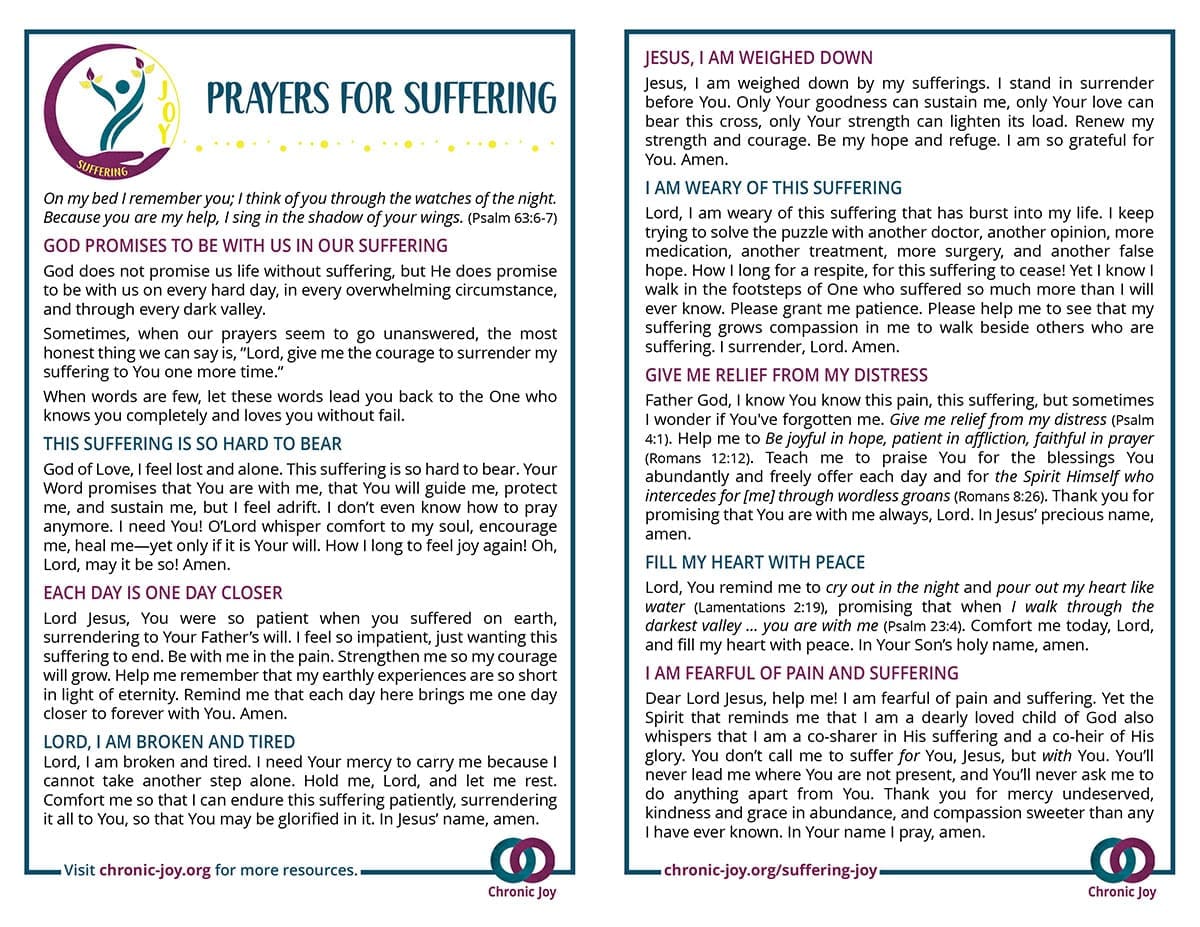
Prayers for Suffering
Sometimes, when our prayers seem to go unanswered, the most honest thing we can say is, “Lord, give me the courage to surrender my suffering to You one more time.”
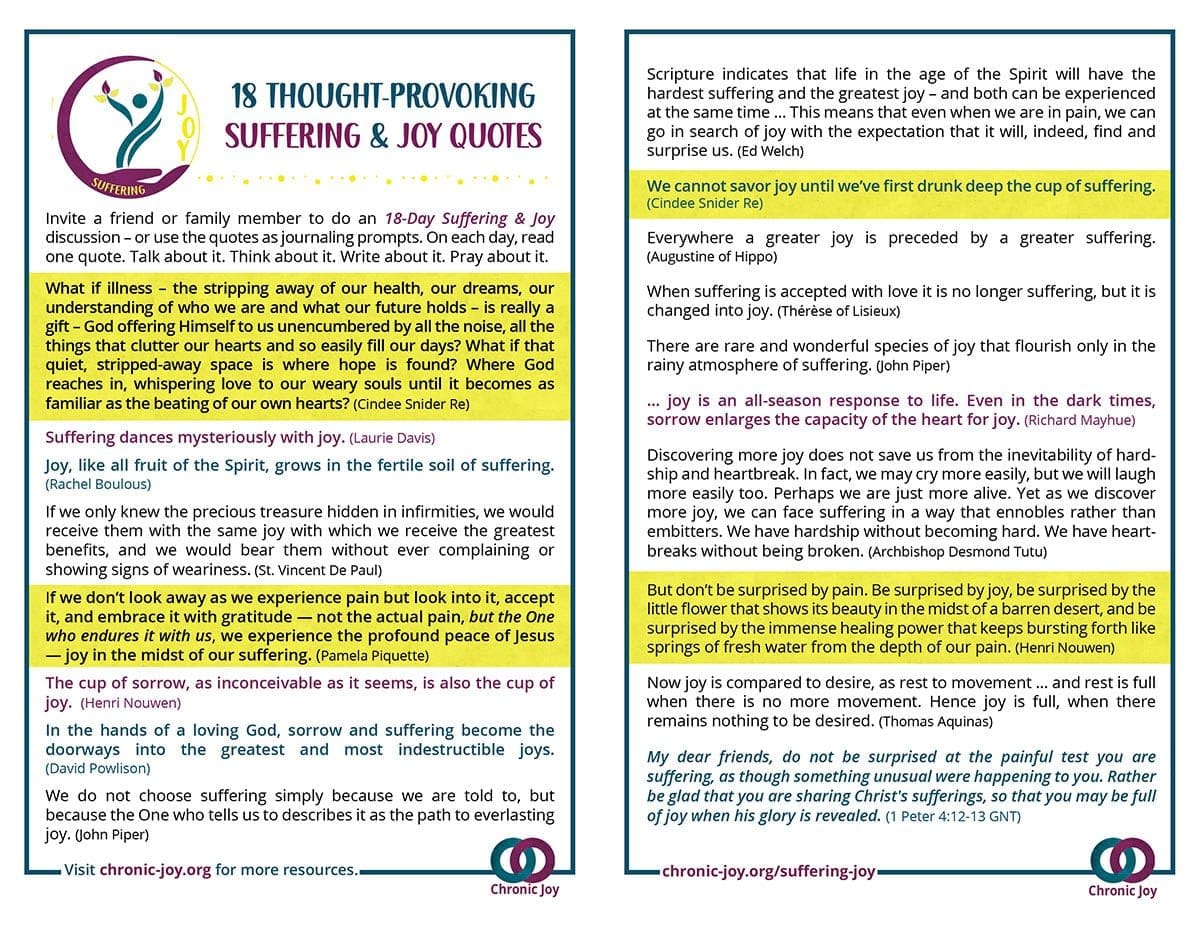
18 Thought-Provoking Suffering & Joy Quotes
Invite a friend or family member to do an 18-Day Suffering & Joy discussion—or use the quotes as journaling prompts. On each day, read one quote. Talk about it. Think about it. Write about it. Pray.
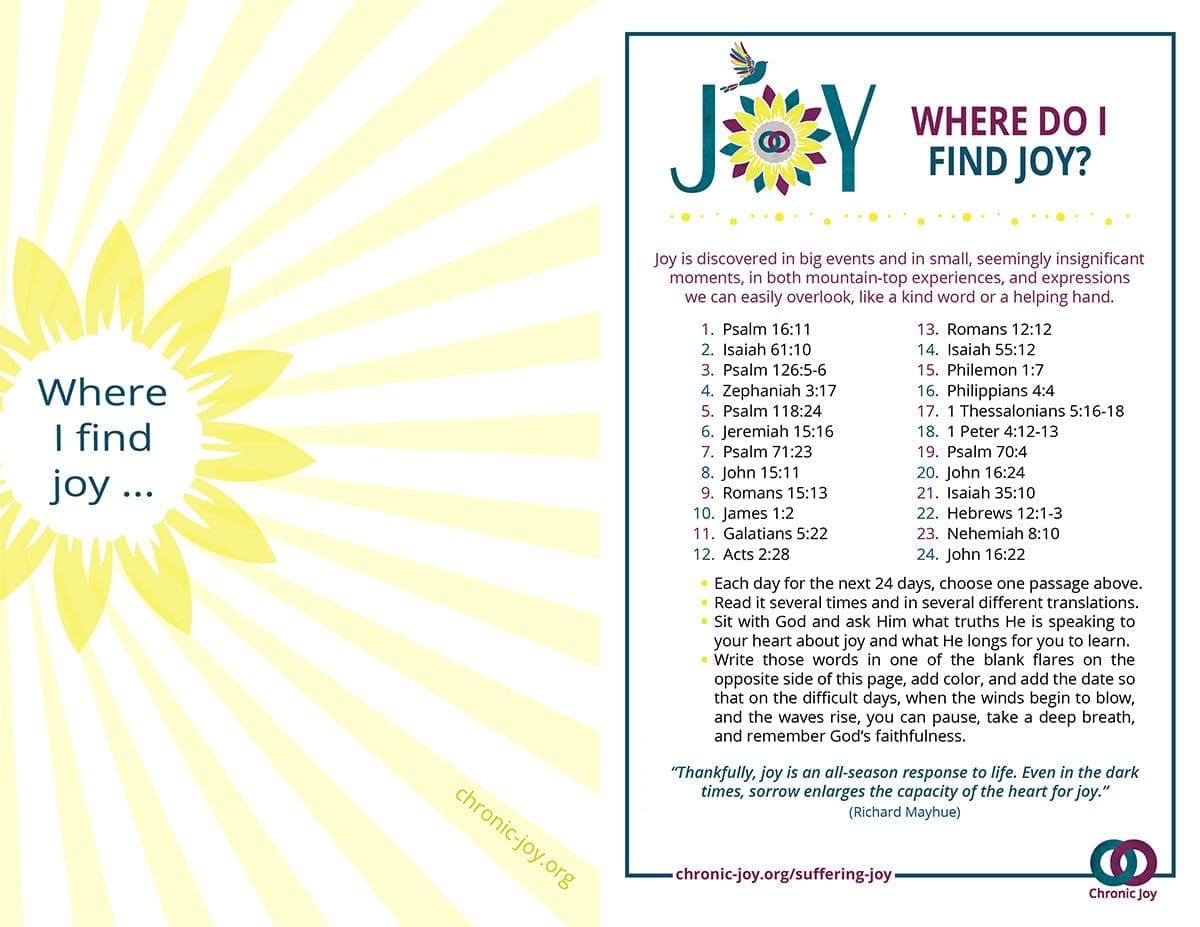
Where do I find joy?
Joy is discovered in big events and in small, seemingly insignificant moments, in both mountain-top experiences, and smaller expressions we can easily overlook, like a kind word or a helping hand.
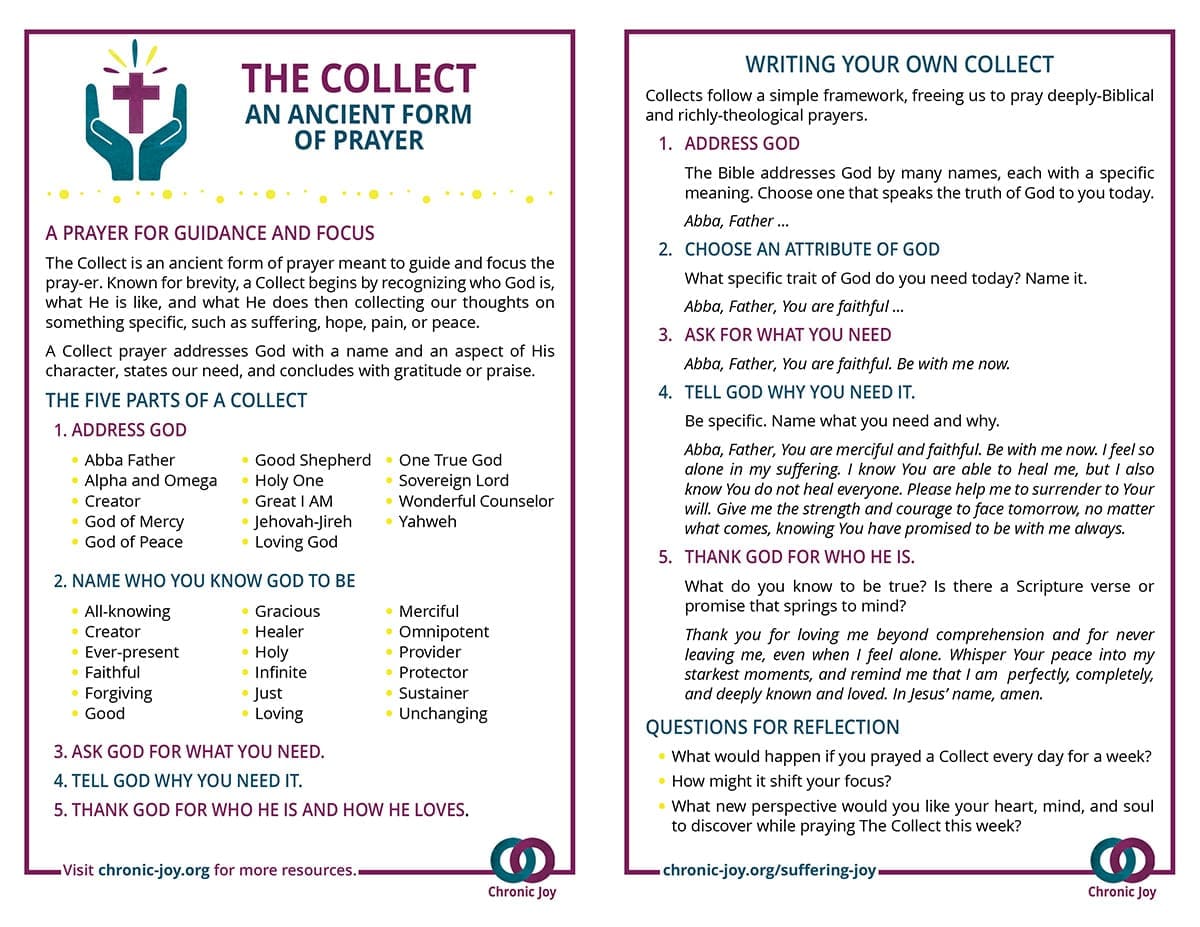
The Collect: An Ancient form of Prayer
The Collect is an ancient form of prayer meant to guide and focus the pray-er. Known for brevity, a Collect begins by recognizing who God is, what He is like, and what He does then collecting our thoughts on something specific, such as suffering, hope, pain, or peace.
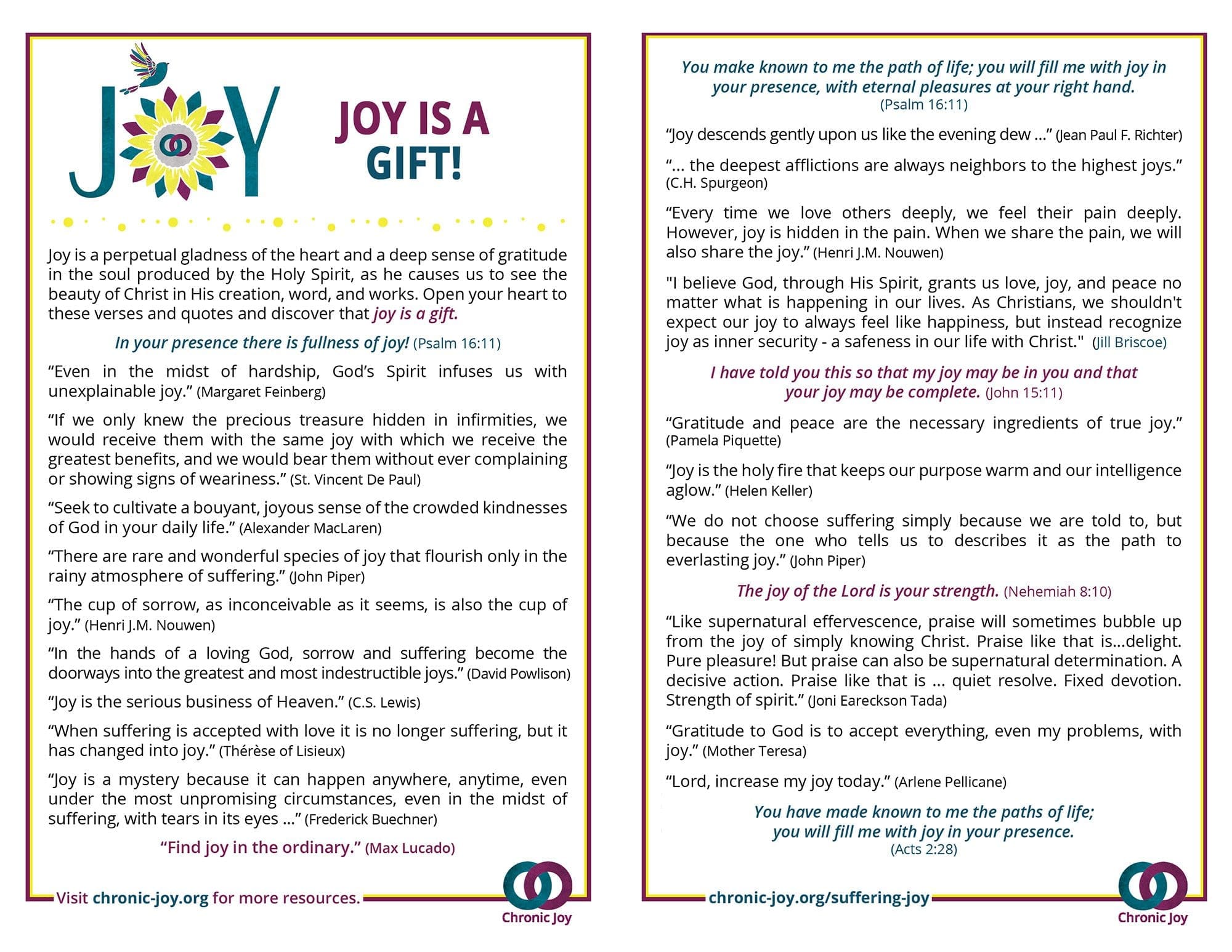
Joy is a Gift
Joy is a perpetual gladness of the heart and a deep sense of gratitude in the soul produced by the Holy Spirit, as he causes us to see the beauty of Christ in His creation, word, and works. Open your heart to these verses and quotes and discover that joy is a gift.
…our joy are only the tender shadows, which our sorrows cast.
“In this world, full often, our joy are only the tender shadows, which our sorrows cast.” Henry Ward Beecher
We do not choose suffering … is the path to everlasting joy.
“We do not choose suffering simply because we are told to, but because the One who tells us to describes it as the path to everlasting joy. ” John Piper
Now joy is compared to desire, as rest to movement…
“Now joy is compared to desire, as rest to movement … and rest is full when there is no more movement. Hence joy is full, when there remains nothing to be desired.” Thomas Aquinas
…joy is an all-season response to life.
“… joy is an all-season response to life. Even in the dark times, sorrow enlarges the capacity of the heart for joy.” Richard Mayhew
We cannot savor joy until we’ve first drunk deep the cup of suffering.
“We cannot savor joy until we’ve first drunk deep the cup of suffering.” Cindee Snider Re
The cup of sorrow, as inconceivable as it seems is also the cup of joy.
“The cup of sorrow, as inconceivable as it seems is also the cup of joy.” Henri Nouwen
Everywhere a greater joy is preceded by a greater suffering.
“Everywhere a greater joy is preceded by a greater suffering.” Augustine of Hippo
You will grieve, but your grief will turn to joy.
You will grieve, but your grief will turn to joy. (John 16:20)
Sorrow and suffering become the doorways into joy.
“Sorrow and suffering become the doorways into joy.” David Powlison
Joy, like all the fruit of the Spirit grows in the fertile soil of suffering.
“Joy, like all the fruit of the Spirit grows in the fertile soil of suffering.” Rachel Boulous
We are never alone in our suffering…
“We are never alone in our suffering, and it is never the end of the story.” Cindee Snider Re
I have learnt to love the darkness of sorrow;
“I have learnt to love the darkness of sorrow; there you see the brightness of His face.” Madam Guyon
POSTS
Growing in Compassion
I find joy in my brokenness – in my chronic illness, in my disability, in my pain – because it becomes a bridge that connects my story to another person's story. Usually, my cane provides an opportunity to connect with a stranger and show them compassion in a way that I simply could not have done otherwise.
I Watch
I watch, Father, as my heart struggles to know what to do, how to do it, and how to bring comfort where there is so much pain.

Fields of Joy
Ruth Chou Simons
We were made for joy. And yet, true and lasting happiness is sometimes harder to hold on to than it seems. With one thought, one word, it can slip out of our grasp. In a world of countless counterfeits, if you struggle to cultivate and experience true joy, these short meditations will encourage you to preach truth to your own heart.
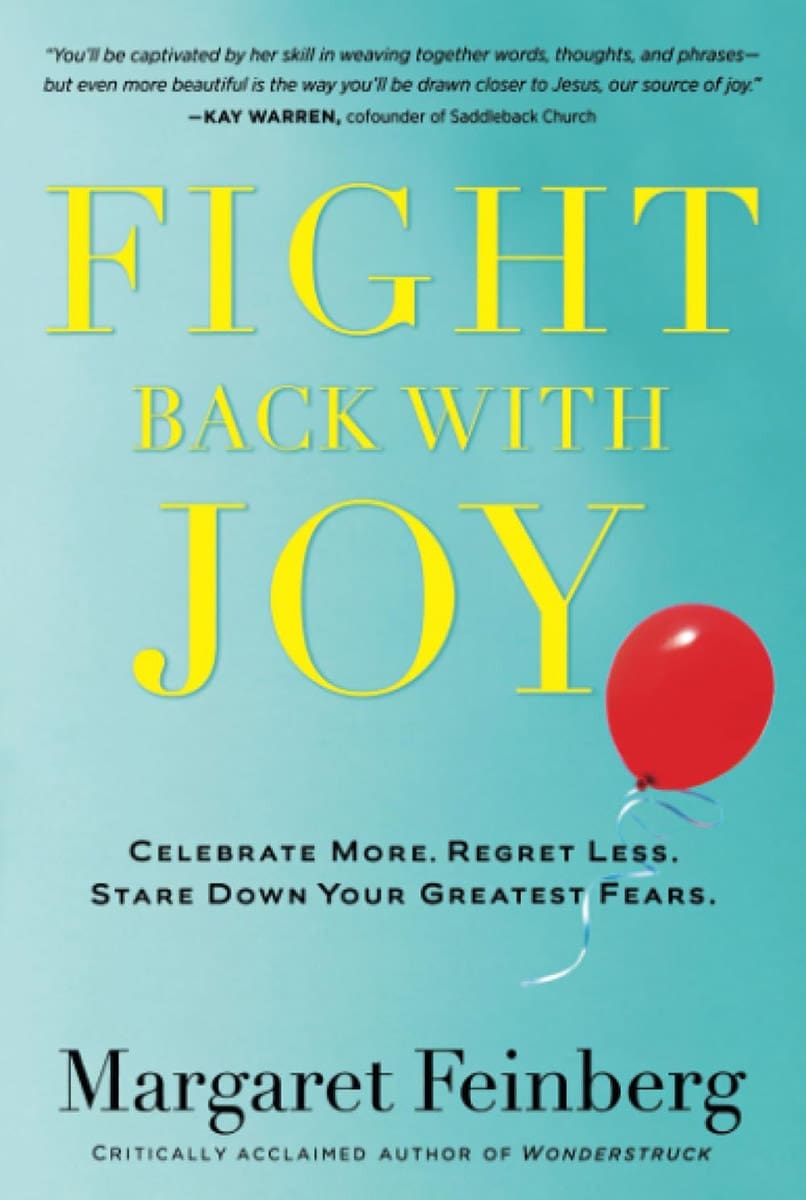
Fight Back With Joy: Celebrate More. Regret Less. Stare Down Your Greatest Fears.
Margaret Feinberg
When Margaret learned she had cancer, she knew she would need great strength to overcome it. She believed the weapon she selected for the battle would change everything. And she decided that weapon would be joy. Joy is more than whimsy. It’s the weapon you can use to fight life’s greatest battles.
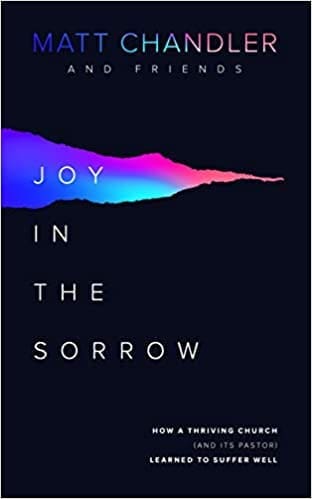
Joy in the Sorrow: How a Thriving Church (and Its Pastor) Learned to Suffer Well
Matt Chandler and Friends
We all wonder how we will cope in times of terrible suffering and how we can best support others who are suffering. We all ask, “How does suffering square with God’s character and purpose?” Joy in the Sorrow is Matt’s story of his battle with a potentially fatal brain tumor and the stories of those who taught him – and teach him – how to walk with joy in sorrow.
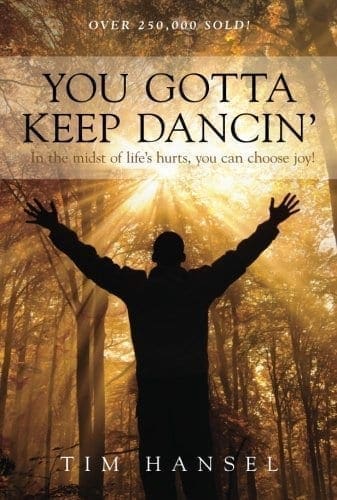
You Gotta Keep Dancin': In the Midst of Life's Hurts, You Can Choose Joy!
Tim Hansel
Life can be tough. Stress, disappointment, heartache, and hurt are all part of the human condition. While pain is unavoidable, misery is optional! No matter what your circumstances, you can choose to be joyful. In Hansel’s powerful account of God’s working in one man’s physical and emotional suffering, he and we discover the real meaning of joy.
SUFFERING

Beyond Suffering Bible NLT: Where Struggles Seem Endless, God's Hope Is Infinite
Joni Eareckson Tada
There is hardly a person who doesn’t know someone dealing with a disability, disease, chronic illness, or other form of personal suffering. This is the first study Bible to directly address those who suffer and the people who love and care for them. Readers will find valuable information, meaningful encouragement, and challenging applications as they encounter God’s Word.
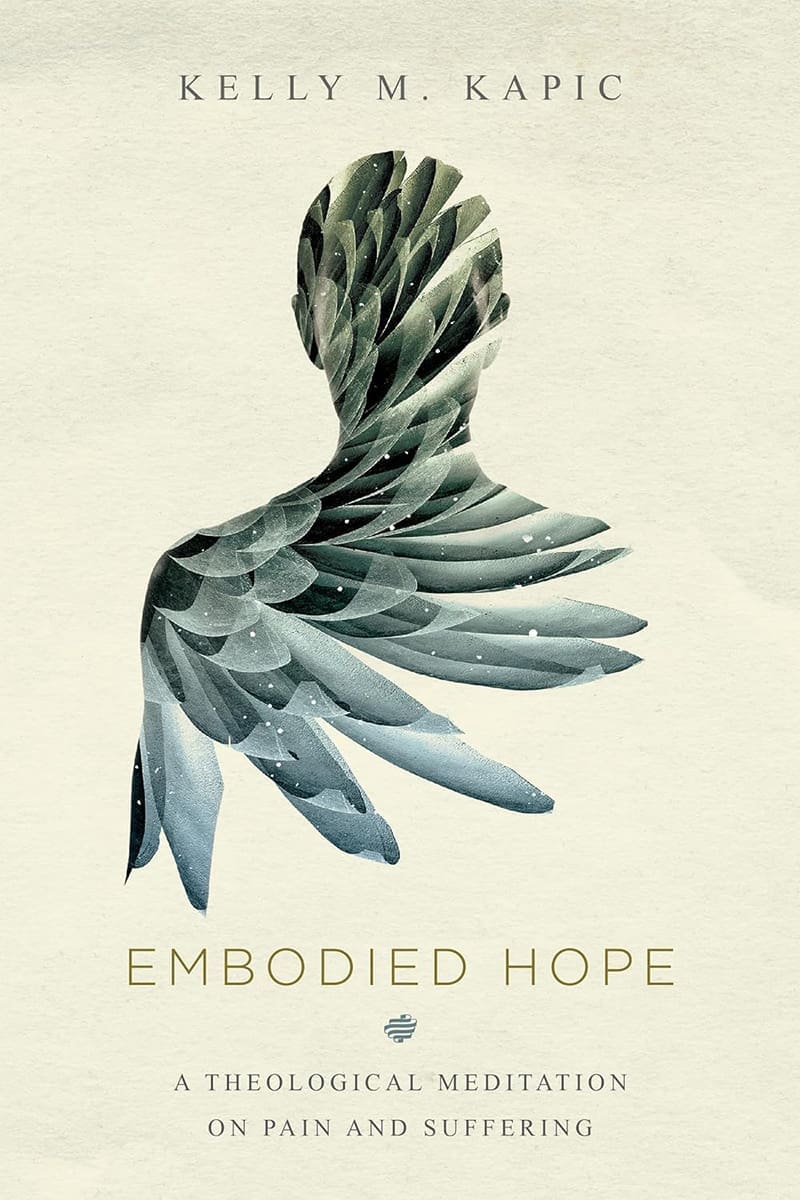
Embodied Hope: A Theological Meditation on Pain and Suffering
Kelly Kapic
Too often the Christian attitude toward suffering is characterized by a detached academic appeal to God’s sovereignty, as if suffering were a game or a math problem. Or maybe we expect that since God is good, everything will just work out all right somehow. But where then is honest lament? Aren’t we shortchanging believers of the riches of the Christian teaching about suffering?

The Hidden Smile of God: The Fruit of Affliction in the Lives of John Bunyan, William Cowper, and David Brainerd
John Piper
John Piper invites you into the lives of John Bunyan, William Cowper, and David Brainerd to discover how God takes the privilege of faith and strengthens it with trials so that we experience a greater hunger for him. The perseverance of these godly servants exemplifies the essential fruit that affliction can produce in your own life.
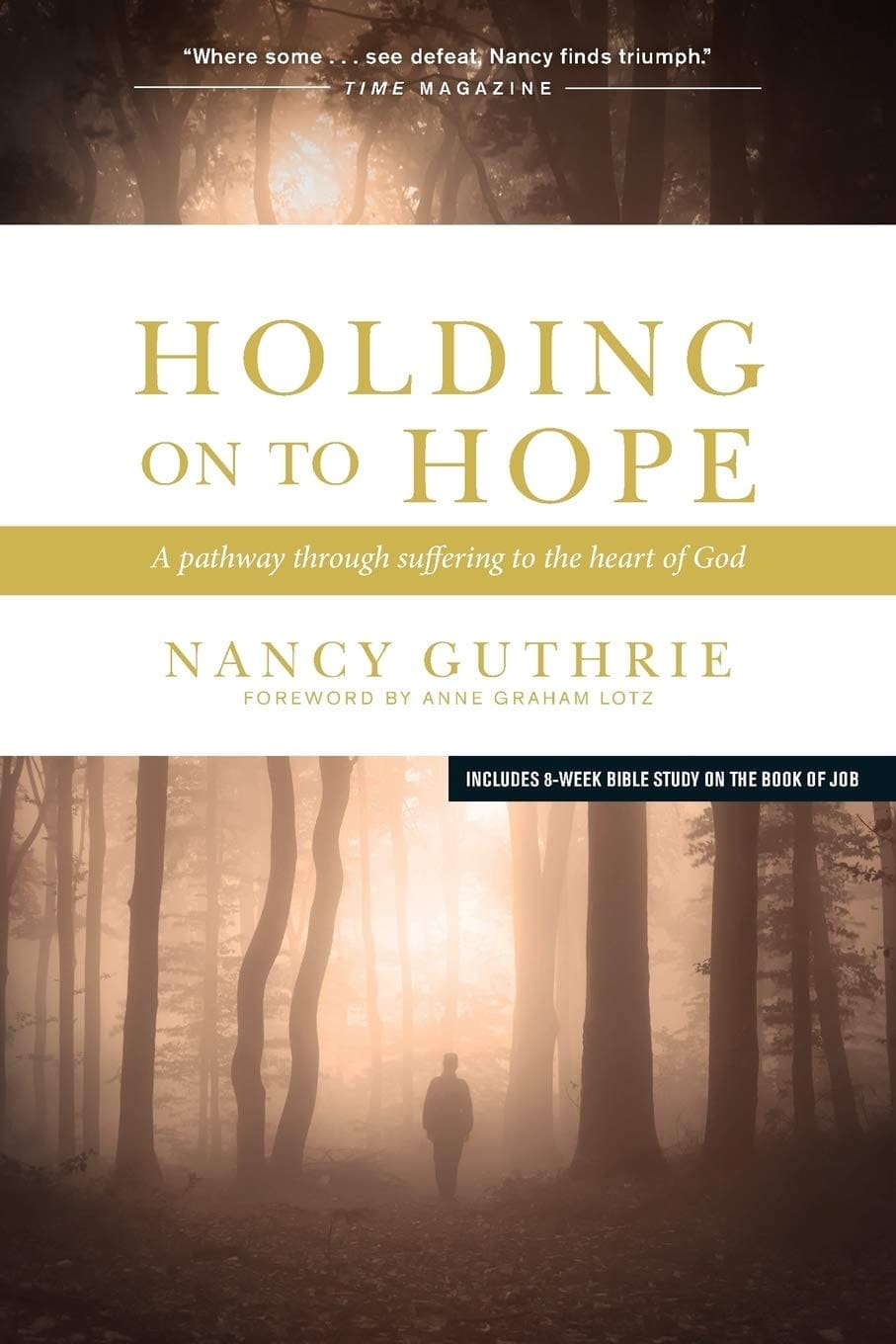
Holding On to Hope: A Pathway through Suffering to the Heart of God
Nancy Guthrie
Nancy Guthrie knows what it is to be plunged into life’s abyss. Framing her own story of staggering loss and soaring hope with the biblical story of Job, she takes you by the hand and guides you on a pathway through pain―straight to the heart of God. Holding On to Hope offers an uplifting perspective.
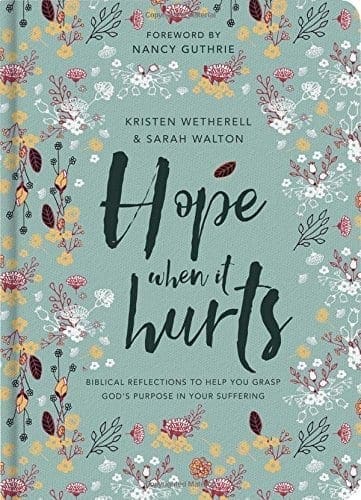
Hope When it Hurts – Biblical reflections to help you grasp God’s purpose in your suffering

Joy in the Sorrow: How a Thriving Church (and Its Pastor) Learned to Suffer Well
Matt Chandler and Friends
We all wonder how we will cope in times of terrible suffering and how we can best support others who are suffering. We all ask, “How does suffering square with God’s character and purpose?” Joy in the Sorrow is Matt’s story of his battle with a potentially fatal brain tumor and the stories of those who taught him – and teach him – how to walk with joy in sorrow.
The Scars That Have Shaped Me: How God Meets Us in Suffering
Vaneetha Rendall Risner
Twenty-one surgeries by age thirteen. Years in the hospital. Verbal and physical bullying from schoolmates. Multiple miscarriages as a young wife. The death of a child. A debilitating progressive disease. Riveting pain. Abandonment. Unwanted divorce. Vaneetha begged God for the grace to deliver her, but God offered something better: His sustaining grace.
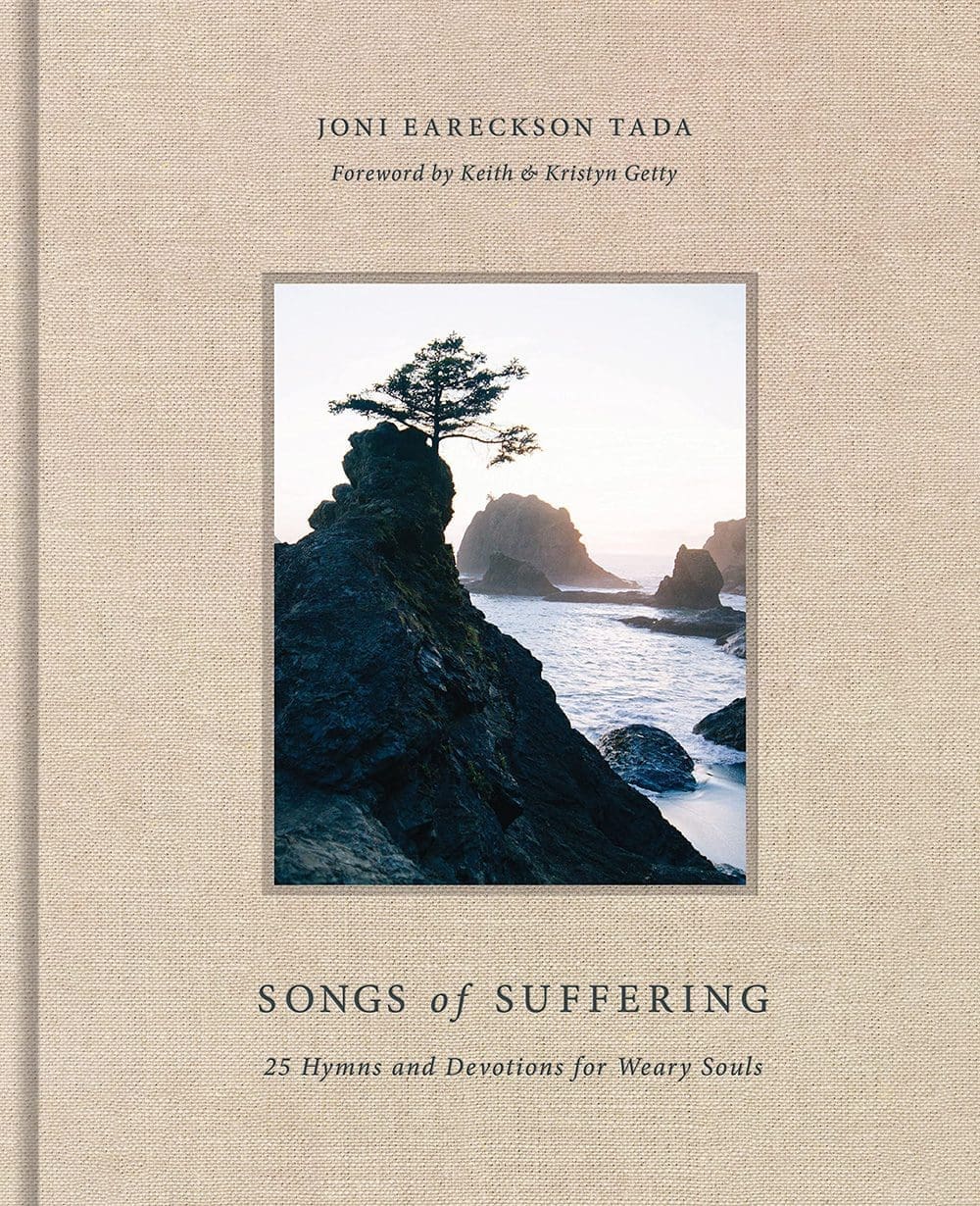
Songs of Suffering: 25 Hymns and Devotions for Weary Souls
Suffering Is Never for Nothing
Elisabeth Elliot
Hard times come for all in life, with no real explanation. When we walk through suffering, it has the potential to devastate and destroy, or to be the gateway to gratitude and joy. Suffering and love are inexplicably linked, as God’s love for His people is evidenced in His sending Jesus to carry our sins, griefs, and sufferings to the cross. He has walked the ultimate path of suffering, and He has won victory on our behalf.
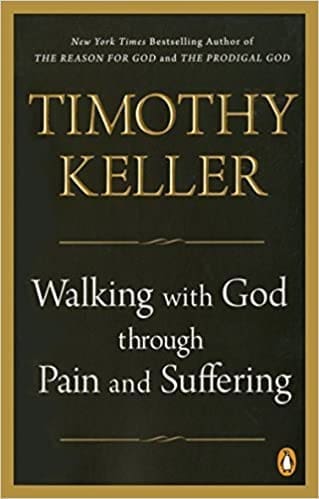
Walking with God through Pain and Suffering
Timothy Keller
The question of why God would allow pain and suffering in the world has vexed believers and nonbelievers for millennia. This book shows that there is meaning and reason behind our pain and suffering. The author uses biblical wisdom and personal stories of overcoming adversity. He makes a forceful and ground-breaking case that this essential part of the human experience can be overcome only by understanding our relationship with God.
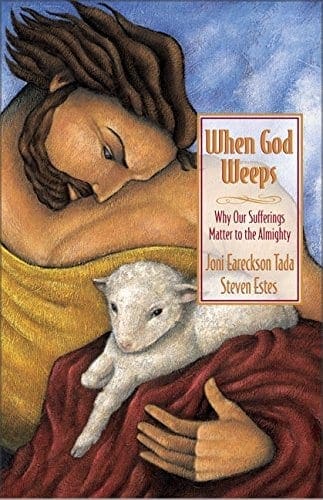
When God Weeps
Joni Eareckson Tada
It’s easy to trust God when things are going our way and the world makes sense. But when suffering strikes–especially seemingly senseless suffering–we are filled with doubt and stunned by events spiraling beyond our control. When God Weeps offers dependence on his love and mercy in spite of our doubts, fears, longings, and questions.
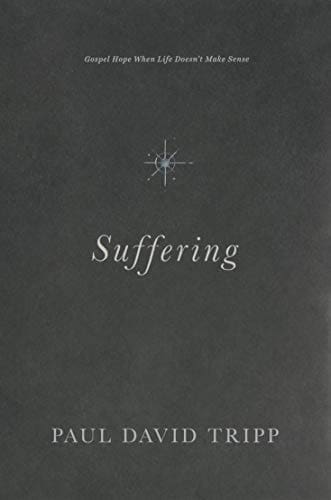
Suffering: Gospel Hope When Life Doesn’t Make Sense
The Amazon buttons are affiliate links, which means if you click on the link and purchase the item, Chronic Joy will receive an affiliate commission.



